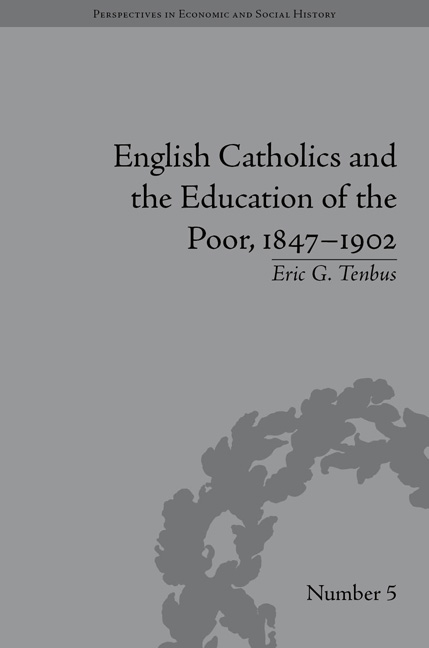Book contents
- Frontmatter
- CONTENTS
- Dedication
- Preface and Acknowledgements
- 1 A Church Divided and the Educational Solution
- 2 The Status of Catholic Education at Mid-Century and the Catholic Educational Philosophy
- 3 Educational Obstacles to Overcome
- 4 English Catholics and the Politics of Education, 1847–70: Preparing for Battle
- 5 English Catholics and the Politics of Education, 1870: The Battle Begins
- 6 English Catholics and the Politics of Education, 1871–90: Engaging With the Enemy
- 7 English Catholics and the Politics of Education, 1891–1902: A Strategy for Success
- 8 Catholic Education and Identity after the Balfour Act: The Battle Ends but the Fight Continues
- Notes
- Works Cited
- Index
4 - English Catholics and the Politics of Education, 1847–70: Preparing for Battle
- Frontmatter
- CONTENTS
- Dedication
- Preface and Acknowledgements
- 1 A Church Divided and the Educational Solution
- 2 The Status of Catholic Education at Mid-Century and the Catholic Educational Philosophy
- 3 Educational Obstacles to Overcome
- 4 English Catholics and the Politics of Education, 1847–70: Preparing for Battle
- 5 English Catholics and the Politics of Education, 1870: The Battle Begins
- 6 English Catholics and the Politics of Education, 1871–90: Engaging With the Enemy
- 7 English Catholics and the Politics of Education, 1891–1902: A Strategy for Success
- 8 Catholic Education and Identity after the Balfour Act: The Battle Ends but the Fight Continues
- Notes
- Works Cited
- Index
Summary
Much has been written on Catholic political activity in the nineteenth century and two recent works in particular have examined this subject. One argues that English Catholics were of little importance in the political world of mid- to late nineteenth-century Britain, despite their protestations to the contrary. It argues that Catholics consistently exaggerated the value of the Catholic vote and their own ability to manage it as a way to gain patronage. Overall, it calls the political experience of English Catholics in the last fifty years of the century ‘one of misplaced hopes and disappointed enthusiasms’, an impotent force in an age of virile political operators.
More recently, another work argues that earlier portrayals of Catholic political impotence are based on a fundamental misreading of Catholic political intentions. This work asserts that English Catholic political participation was not solely to work for goals exclusive to the Catholic community but to work as individuals taking advantage of democracy to become politically engaged. This argument acknowledges greater Catholic political success than others; however, success was not always immediate, was built, in part, upon cooperation with other religious groups and achieved goals that were perhaps more broadly Christian in nature than specifically Catholic.
On the subject of education, Catholics were more vocal, organized and politically active than on other issues. But this politically active Catholic community did not begin to develop until the storm of the Education Act of 1870 arrived.
- Type
- Chapter
- Information
- Publisher: Pickering & ChattoFirst published in: 2014



